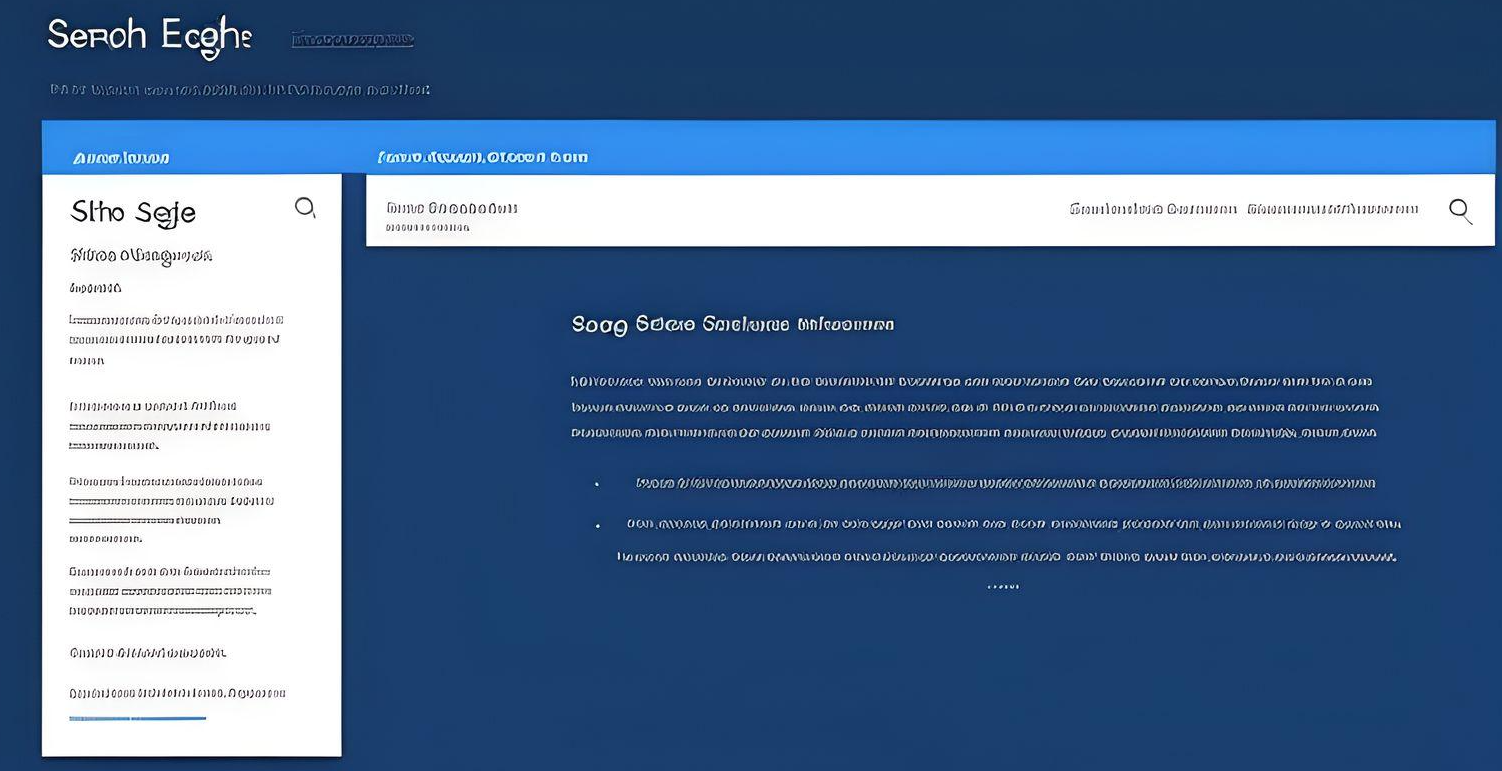Fundamentals of
Search Engine Optimization
(SEO)
Drive digital success with Wallen-Douglas Digital's expert strategy, design, and optimization services.
In today’s digital landscape, the importance of search engine optimization (SEO) cannot be overstated. With millions of websites vying for attention on search engines like Google, implementing effective SEO strategies is crucial for online success. This comprehensive guide aims to provide valuable insights and practical knowledge to help you understand the fundamentals of SEO and improve your website’s visibility in search engine results.
Definition and Significance of SEO
At its core, SEO is optimizing a website to enhance its visibility on search engine results pages (SERPs). When users search for specific keywords or phrases, SEO helps your website appear higher in the organic search results, driving more organic traffic and boosting engagement. In today’s competitive online landscape, businesses must prioritize SEO to stand out, reach their target audience, and achieve their online goals.
Key Elements of SEO
A. Keyword Research
Keyword research is a vital starting point in any SEO strategy. It involves understanding the terms and phrases your target audience uses when searching for products, services, or information related to your business. By uncovering these keywords, you can create content that aligns with user intent, attract the right audience, and increase your website’s relevance in search results. Utilize tools like Google Keyword Planner, SEMrush, or Moz Keyword Explorer for comprehensive keyword research.
B. On-Page Optimization
On-page optimization focuses on optimizing various elements within your website to improve its search engine rankings. Start by optimizing title tags, meta descriptions, header tags, and URL structures, incorporating relevant keywords naturally. Additionally, prioritize creating high-quality, engaging content that provides value to your audience while utilizing keywords effectively. This ensures that search engines understand the relevance and importance of your content.
C. Off-Page Optimization and Link Building
Off-page optimization involves activities outside your website that influence your search engine rankings. Link building is critical, where you acquire high-quality backlinks from reputable websites. These backlinks act as endorsements for your content, signaling to search engines that your website is trusted and authoritative. Effective link-building strategies include guest blogging, influencer outreach, and social media engagement.
Technical SEO
A. Website Structure and Navigation
A user-friendly website structure and navigation are essential for both users and search engines. A well-organized website makes it easier for search engine crawlers to access and index your web pages. Optimize your website for mobile devices to provide a seamless browsing experience. Compress images and enable browser caching to improve page load speed, as it directly impacts user satisfaction and search engine rankings.
B. Indexing and Crawling
To ensure search engines effectively discover and index your website’s pages, provide clear instructions through the robots.txt file and XML sitemaps. These files help search engine crawlers understand the structure and content of your website. Additionally, address duplicate content issues using canonical tags or implementing 301 redirects when necessary.
C. Schema Markup and Rich Snippets
Implementing schema markup is a powerful way to enhance search engine results and improve click-through rates. Schema markup involves adding structured data to your website’s HTML, providing search engines with additional context about your content. This can result in rich snippets in search results, showcasing additional information like ratings, reviews, or event details, making your listing more enticing to users.
Content Marketing and SEO
Content marketing and SEO go hand in hand. Creating high-quality, relevant, and engaging content attracts and retains users and increases your website’s visibility in search engine rankings. To diversify your content strategy, utilize various content formats, such as blog posts, infographics, videos, and images. Incorporate target keywords within your content to help search engines understand its relevance.
Local SEO
For businesses targeting specific geographic areas, local SEO is vital. Optimize your Google My Business listing by providing accurate and up-to-date information, encouraging customer reviews, and showcasing your products or services. Build local citations by listing your business in online directories and ensuring consistent communication across all platforms. Positive online reviews and community engagement further enhance your local search visibility.
SEO Analytics and Measurement
Measuring and analyzing SEO performance is crucial for evaluating the effectiveness of your strategies and making data-driven decisions. Utilize tools like Google Analytics and Google Search Console to gain valuable insights into keyword rankings, organic traffic, user behavior, and more. Regularly monitor these metrics to identify areas for improvement, track your progress, and adjust your SEO efforts accordingly.
VII. Staying Up-to-Date with SEO Trends and Best Practices
The field of SEO is constantly evolving as search engines refine their algorithms. Stay updated with the latest trends and best practices by following industry experts and reputable SEO resources. Continuous learning and optimization are crucial to adapting strategies and maintaining a competitive edge.
Conclusion
In conclusion, SEO is a fundamental aspect of online visibility and success. By understanding and implementing the key elements of SEO, such as keyword research, on-page optimization, off-page optimization, technical SEO, content marketing, local SEO, and SEO analytics, you can enhance your website’s visibility, attract more organic traffic, and achieve your online goals. Prioritize SEO as a long-term strategy to continually improve your search engine rankings and stay ahead of the competition.
What is Digital Strategy
Understand digital strategy fundamentals and their benefits for your business.
What is Search Engine Optimization (SEO)
Maximize your online presence with SEO. Learn how.
What is User Experience Design (UX)
Improve customer satisfaction with UX design. Learn how.
What is Reporting & Analytics
Unlock data-driven insights for business success. Discover how.
Digital Strategy, SEO, UX, and Analytics Made Easy: Your Complete Learning Destination
Navigating the Digital Landscape: Discover Strategies and Tactics for Success in SEO, UX, and Analytics
Unleash Potential
Unlock the full potential of your business with Wallen-Douglas Digital - get in touch to see how our expertise and tailored solutions can drive your success.









